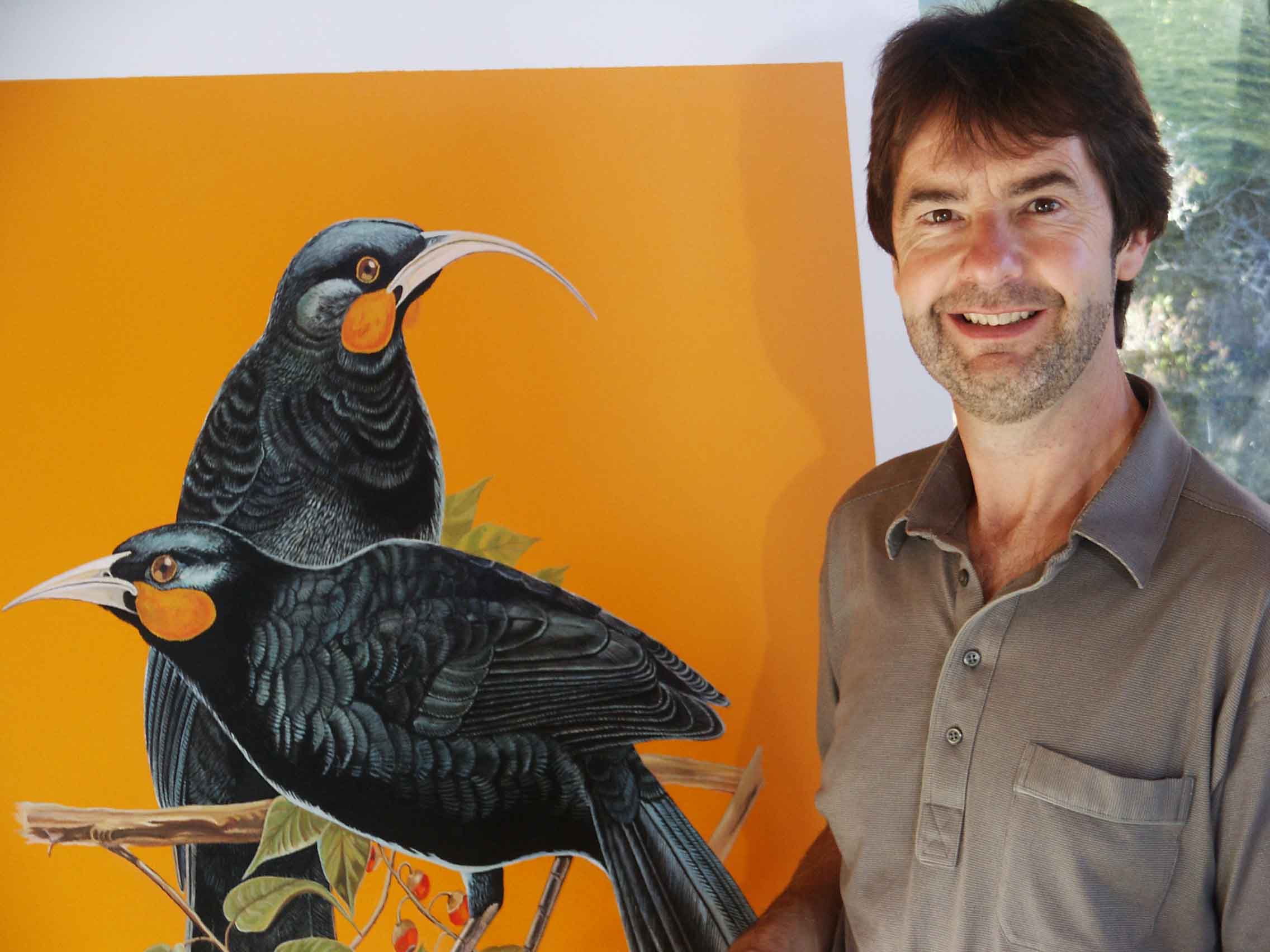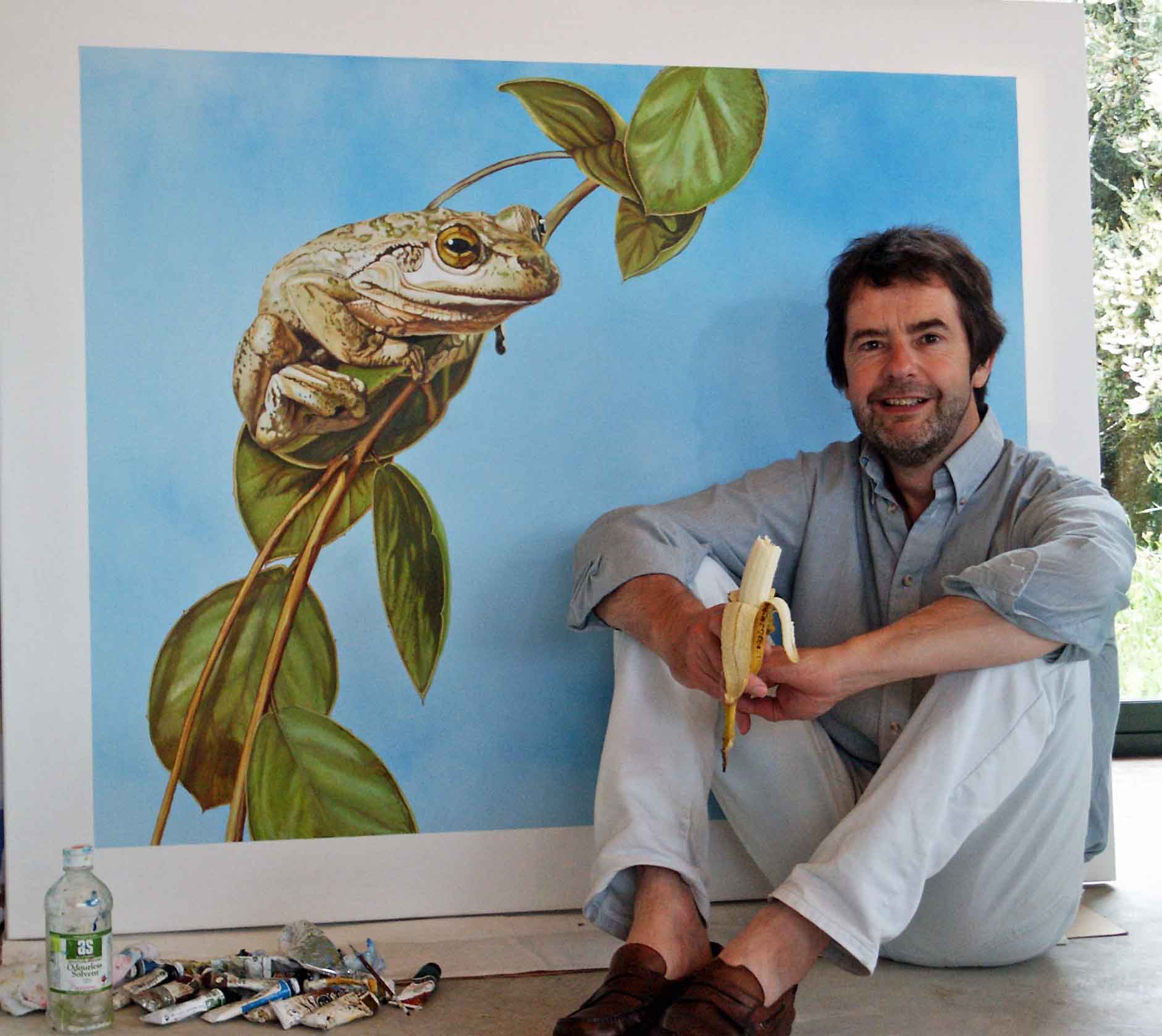My name is Stephen Bolwell. I have a background in science and have a degree in Zoology from The Royal College of Science. Imperial College, London.
I am a naturalist and wildlife film maker, and I have spent more than 30 years filming wildlife around the world for television – including the B.B.C. Natural History Unit. I have also worked in special effects, but far prefer making things to blowing them up.
In 1998 I began painting and sculpting full time and in 2002 moved with my family to New Zealand where I am represented by the Ferner Galleries. My art juxtaposes realism and abstraction to ask questions about both the environment and how we view it.

In New Zealand I set up a nature reserve, combining the native bush with a native garden in an attempt to increase species diversity around my New Zealand home. Part of that land is now protected in perpetuity by a QEII National Trust Covenant.
My interests include the status of plant and animal species within natural environments and I try to be active in conservation. Hence, I post a variety of short videos on YouTube concerning wildlife and I write this Blog, which combines photography both as an art form, and more directly, as a means of documenting events with the intention of encouraging others to take pictures that will help protect the natural world.
In doing so I occasionally juxtapose reality with what we are prepared to believe. It is great to be childlike and fresh in our thinking, but I always return to evidence based science when considering the position our species holds in relation to our inability to deal appropriately with issues facing the planet. I won’t say ‘our’ planet because ‘we’ belong to it’, rather that ‘it’ belonging to ‘us’.

I don’t have an agenda, but I would hope to encourage free thinking – with a good dose of logic, backed by up by rigorous science when necessary – I think this the correct way for us to make the best decisions for life on Earth – although it is also necessary to engage by telling a good story.
I genuinely believe that anybody can take a good photograph, but not necessarily every time. And finally, I really don’t take myself too seriously and neither should you… Now you’re wondering who I’m talking about – do I mean me, or do I mean you?
To see my paintings and sculptures please go to:
agilispictures.com
Hi Stephen
I am an educator and writer on issues of sustainability and would very much like to use your example of exponential growth by Timmy (aged 6) in a booklet I’m writing. This would be available for students and teachers on my website. Would that be possible with appropriate credits, I wonder?
And I love your photos, an unexpected treat.
Best wishes
Dave Hicks
That’s fine Dave; providing you are using good science and maths I’m happy with that – a credit and link would be appreciated. Concerning exponential growth: one of the most effective examples I have seen that best explains the process to children is to start your exponential growth clock running at midnight and work through until mid-day (12 hours is a time scale that most of us can relate to). If you make a good decision on your time periods for exponential growth (doubling up times), this demonstration can be very thought provoking. It might be argued that earlier in the day there isn’t a real problem with finding the necessary resources to service the doubling up, but as you approach the steep end of the exponential curve the doubling of the resource becomes enormous and impossible to service in any practical sense – between two seconds to mid-day and mid-day the numbers can be startling. This however is the way we run our economies in relation to the limited natural resources the Planet has to offer. It is odd that any intelligent person would consider it possible to continue with this ‘business as usual’ approach without at least some modification to our behaviour. I can only assume that some very clever people really don’t understand what exponential means, or maybe they just don’t want to.
With all good wishes,
Stephen Bolwell.